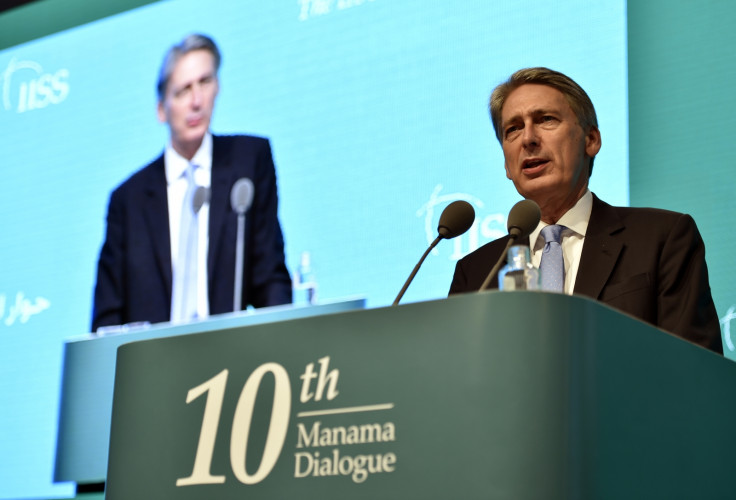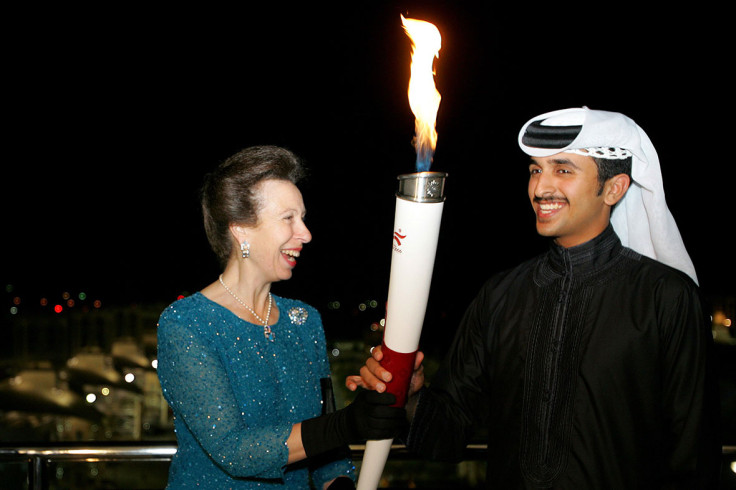Bahrain naval base 'reward' for British silence on human rights

The news of the opening of a £15m British naval base in Bahrain has been met with frustration and anger by human rights activists in the country.
Within two years Britain will open its first permanent base since it pulled out from the Gulf in 1971, with the aim to expand its military presence in the country. Since the withdrawal, the Royal Navy has used the country's Mina Salman Port only for temporary docking, with crews sleeping on board.
Upon signing the agreement at the annual Manama Dialogue regional security summit in Bahrain, the ministers of the two countries said the base will be key in the fight against extremism in the Middle East, including the Islamic State (Isis) threat and the civil war in Syria.
"This new base is a permanent expansion of the Royal Navy's footprint and will enable Britain to send more and larger ships to reinforce stability in the Gulf," defence secretary Michael Fallon said.
"We will now be based again in the Gulf for the long term," he added.
Bahrain's ministry of defence said onshore facilities at the Mina Salman Port would be improved, with a new forward operating base and a place to plan, store equipment for military naval operations and accommodate Royal Navy personnel.
Bahrain's Foreign Minister Khalid al-Khalifa said the deal "reaffirms our joint determination to maintain regional security and stability in the face of challenging circumstances".
"Bahrain looks forward to the early implementation of today's arrangement, and to continuing to work with the UK and other partners to address threats to regional security," Khalid said.
Britain withdrew from Bahrain in 1971 as part of the plan to pull out from "East of Suez".
Sectarian conflict
However, Bahraini opposition lashed out against the deal, expressing "strong concern" over the redeployment of British troops in the country.
Prominent Bahraini activist Nabeel Rajab, who was recently freed after spending two years in prison for taking part in "illegal gatherings" in the Gulf country, claimed on Twitter that the British base is a "reward for UK silence on human rights violations" in the country.
#British base which going be built is a reward 4 #UK silence on #humanrights violations in #Bahrain & for opposing our struggle 4 #Democracy
— Nabeel Rajab (@NABEELRAJAB) December 6, 2014
In an interview with IBTimes UK in July, just after his release, Rajab, who is president of the Bahrain centre of human rights (BCHR), said the Bahraini government "have bought the silence of the British government by increasing the business" since the start of the crackdown on peaceful protesters in 2011.
"The arms trade has increased, the business between the UK government and Bahrain has increased after the crackdown over 30% ," he said. "That's why you see not only silence in the British government but also harassment to human rights defenders and even to the people living in this country and who came seeking asylum from Bahrain."
After the crackdown on the pro-democracy uprising in 2011, led by Saudi forces, Bahrain has plunged deeper into sectarian conflict between the wealthy ruling Sunni-al-Khalifa minority and the Shia majority.
King Sheikh Hamad bin Issa Al-Khalifa has pledged to implement recommendations by an independent commission of inquiry but reforms are progressing slowly and reconciliation talks have stalled. Violence between riot police and protesters is a weekly occurrence.
Decrees approved by King Hamad include up to seven years in jail for criticising him. All protests, sit-ins and gatherings in Manama are banned indefinitely.
Human rights activists such as Maryam al-Khawaja, and her sister Zainab have both recently received prison sentences for their pro-democracy activism.
A cosy relationship
Another Bahraini activist, Sayed al-Wadaei, told IBTimes UK that with the latest deal Britain "ignores the legitimate democratic demands of Bahraini people".
"Britain has played massive role in blocking any international pressure towards Bahrain due to its horrific human rights record," he said. "This agreement comes against the will of Bahraini people. When people in Sitra opposed the base they were brutally attacked."
The reference is with the protest that broke out in Sitra against the deal, which was suppressed by police firing teargas against hundreds of demonstrators.

Bahraini-British relations came under scrutiny in May over the announcement of the judicial review into the Bahraini king's son, Prince Nasser, forcing the Queen's son Prince Andrew to withdraw from a Bahraini-funded PR event in London.
A recent High Court ruling stated that Prince Nasser, a regular traveller to the UK, is not immune from prosecution for alleged torture. A Bahraini citizen is seeking his arrest following allegations that he was directly involved in the torture of three prisoners in Bahrain during the uprising.
The Duke of York has maintained warm relations with the Bahraini regime, with frequent visits as Britain's former special representative for trade and investment. He caused controversy when speaking during a visit to Bahrain claiming that what's happening in the archipelago is "a source of hope for many people in the world".
The Queen later welcomed King Hamad of Bahrain at the Royal Windsor Horse Show.
© Copyright IBTimes 2025. All rights reserved.






















